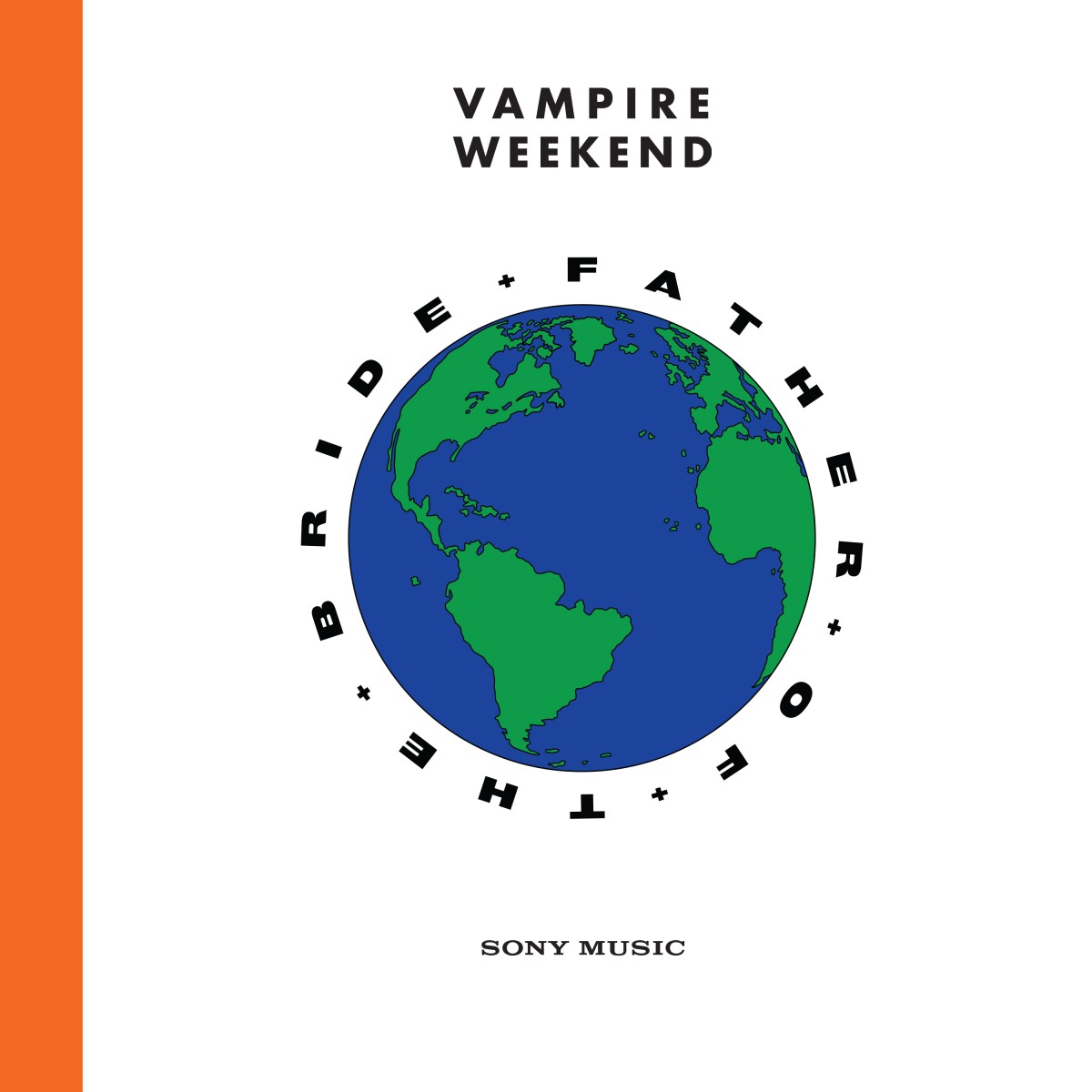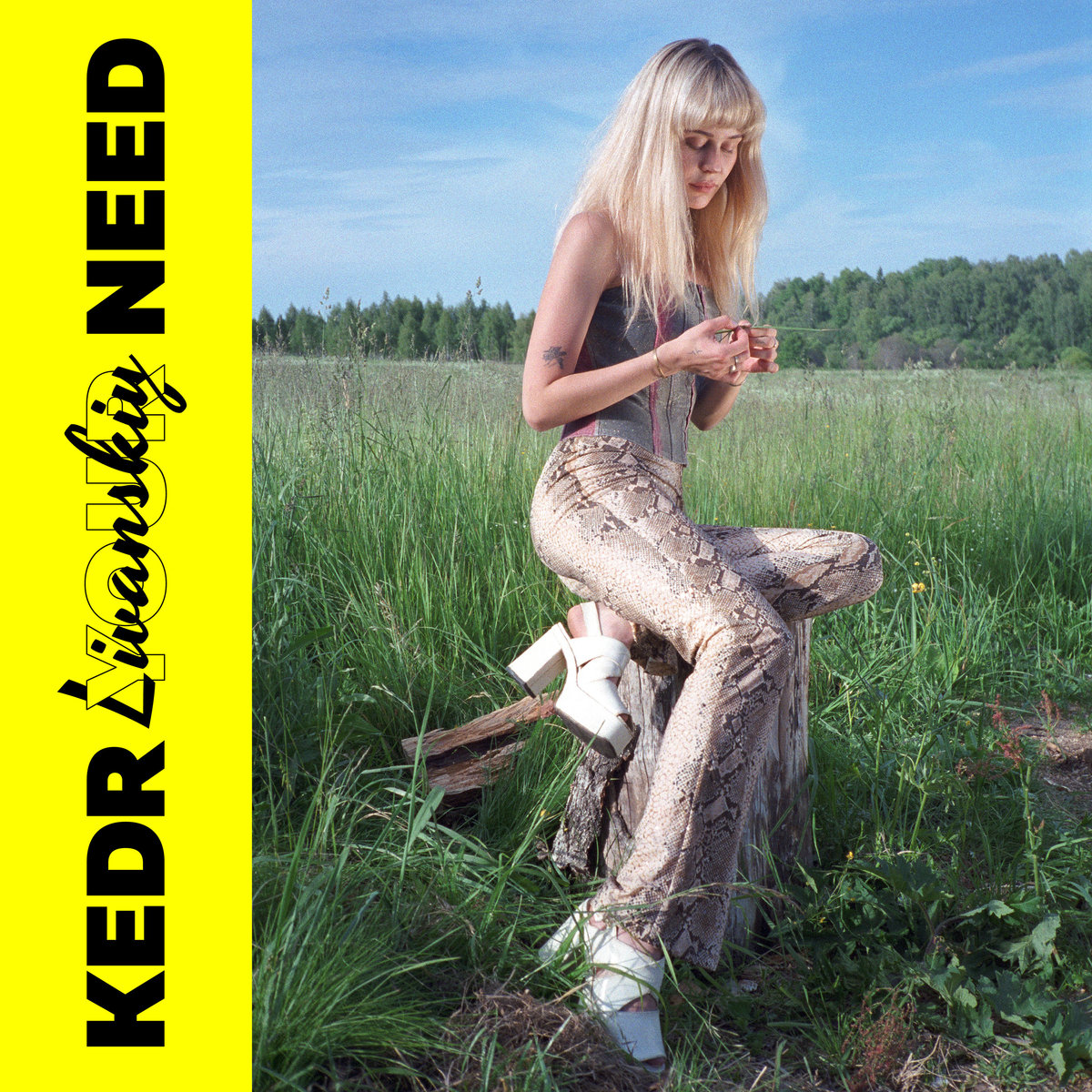Vampire Weekend – ‘Father Of The Bride’
 Sounds like … reading Ezra Koenig’s mirror-written diary.
Sounds like … reading Ezra Koenig’s mirror-written diary.
A lot of people are going to come out of this album cycle thinking Ezra Koenig has lost it. This album was always going to be a rebirth for Vampire Weekend. Their last album, Modern Vampire Of The City, was the kind of weighty, significant masterpiece that very much closed a chapter of their career. Rostam Batmanglij hopped off the wagon (even though he lends a hand here and there on Father Of The Bride). Koenig became a father himself, and settled down in LA, away from the New York so firmly interwoven into their sound and mythos. So, with the next step he took a forced fresh one, where would Koenig go?
A quick skim through this album would make the listener think that fatherhood and sun has softened Koenig, and plonked him firmly into dad-rock territory. With its smooth folk and country sounds, it can seem on a surface level that this 18-song beast is the product of a man with too much studio time and acoustic guitar on his hands, and lacking the fire in his belly to make anything other than gentle soft-rock. Which Koenig, always the almost-infuriatingly smart kid who’s fastest to every punch, is certainly aware of. If you want to get off at the first stop, you’re more than welcome to – Father Of The Bride is an album that needs some digging to get a grip on.
First of all, yes, a lot is lush, pretty country rock. Which is fine, but if that’s not your bag you’re gonna be skipping a lot here. But there’s stuff here that escapes that, such as Sunflower‘s almost R’n’B tinged flickering. Then there’s Hold You Now, which its odd structure and choral sample, which maybe sounds what Kanye would make if he got into cowboy hats. Or 2021, built from Japanese artist Haruomi Hosono’s department store music from the 80s. Every song has more under the surface if you’re willing to scratch. And then there’s the lyrics, so dense they make the music look like bedroom pop by comparison. “Judeo-Christianity, I never heard the word, enemies for centuries until there was a third” from Sympathy is a relatively clear swipe from Jewish Koenig at the unholy alliance between the Israeli government and the Evangelicals. But most of these are gonna require days of research to even start hypothesising about. For example, on This Life‘s chorus, is the “You’ve been cheating on me, but I’ve been cheating through this life?” (hooked from an iLoveMakonnen song) a simple relationship tit-for-tat? Or does, when you add the next line (“I’ve been cheating through this life, and all its suffering”) it mean it’s a reference to Koenig’s privileged life as a rich kid who went from university to a almost-immediately successful band? Father Of The Bride is full of questions like this, lines left open to approach at multiple angles. There are books, like Ian MacDonald’s Revolution In The Head on the Beatles, that explore a band’s work by writing a biography for every song. It kind of feels like, more than an review, Father Of The Bride needs something along those lines to make proper sense of it. It’s a deep album, and after a week in its company I still feel like I’m in the small talk stage with it. But hey, it’s been fun to dig into, and I’m sure it’ll be fun for you too. (Austin Maloney)
Stream Now: ► Spotify / ► Apple Music / ► TIDAL
Big Thief – ‘U.F.O.F.’
 Sounds like … a trip into a mythological forest, inhabited by ghosts, ghouls, aliens and beasts.
Sounds like … a trip into a mythological forest, inhabited by ghosts, ghouls, aliens and beasts.
Over the second half of this nearly completed decade, New York’s Big Thief – and especially enigmatic frontwoman Adrianne Lenker – have established themselves as one of the most exciting acts around. Their two LPs Masterpiece (2016) and Capacity (2017) saw the Brooklyn four-piece grow exponentially in real time in front of us all. Going into their third full-length, however, Lenker released her first solo album in four years, the stunning abysskiss, which has deeply informed her band’s subsequent record U.F.O.F.
Most obviously, this is due to two abysskiss songs appearing in full band form on U.F.O.F, namely From and Terminal Paradise with incredible arrangements in their fuller sounding surroundings. However, even aside from those two tracks, U.F.O.F takes on a brooding, darker tone even for an already “big mood” band as Big Thief. Opener Contact equates to the haunting post-hardcore of Lungfish, complete with screams and all. Meanwhile, the absolutely gorgeous Open Desert is one of the most heartbreaking efforts the band have produced to date. While there are brief glimpses of light to be had in tracks such as Strange or Cattails it is the album’s devastating climax of Jenni and Magic Dealer which really define this album. With U.F.O.F, Big Thief should and will be considered the heir apparent to Radiohead, such is the might of their music. (Adam Turner-Heffer)
Stream Now: ► Spotify / ► Apple Music / ► TIDAL
Martin Kohlstedt – ‘STRÖME’
 Sounds like … bending the boundaries between classical and popular music.
Sounds like … bending the boundaries between classical and popular music.
Classical music is often times approached with a certain prejudice, especially by the generation of popular music. But German composer and pianist, Martin Kohlstedt shatters all stereotypes of the genre on his fourth LP, which is a musical experiment defying not only the boundaries of classical music but bending our common understanding of it in the best possible way. Collaboration and experimentation have always been played a great part in the musician’s style, having worked with hip hop, pop and electronic artists, Martin Kohlstedt is bringing a 50-person choir onto his record Ströme. The mind-opening mix of analog and classical instrumentation he achieves by fusing dynamic synthesiser tunes with well-composed piano solos. Throughout the record the choir serves to establish a vibe of special grandeur. With freedom of improvisation and willingness to explore unknown territory, the composer creates monumental and dynamic musical landscapes. On NIODOM the elegant melodies of the piano virtually guide the listener into the very own world of the musicians mind. In every corner of the album, hidden details can be found – like a musical labyrinth. And while discovering the depth of the musical layers, every song seems to represent a different sphere of imagination and creativity. The minimalistic instrumentation and whispered vocals on THIPHY feel like the mellowness of a foggy morning at first, until they burst into a controlled cacophony of sounds with the liveliness and intensity of a swelling river.
The fourth album Ströme lives off the dynamic suspense and ecstasy, Martin Kohlstedt creates so skillfully. He carries the listener not only deep into his emotions and thoughts but the record also serves as a reflection of the own, while appearing not like something man-made but rather like a delicate construct of nature. Intense soundscapes, whether romantic, fantastic or futuristic draw you in from the first second and don’t let you go until the last. (Liv Toerkell)
Stream Now: ► Spotify / ► Apple Music / ► TIDAL
Kedr Livanskiy – ‘Your Need’
 Sounds like … Kedr’s music learns to dance on her DJ-ing inspired new album.
Sounds like … Kedr’s music learns to dance on her DJ-ing inspired new album.
“Now I am tired of soft, It’s really like metal, in sound, that *makes crashing sound*, noisy but not lo-fi noisy. More clear, less lo-fi. Not with ‘cool’ production, you know like super-mastering, I mean more this metal sound. Though maybe I’m saying this now to you, blah blah, and in final we will have something different”. So said Kedr Livanskiy when I spoke to her over a year ago in Oslo, at roughly around the same time she started work on her new album. Now, that new album is here, and while it’s not metal, it does fulfil her prediction of less lo-fi and more noisey. When she released her debut album Ariadna, the video for the title track saw her out in the Georgian countryside, staring out on the epic, endless landscape. Something about those spaces makes you feel very small, and makes you feel a power in the world around. It was fitting for the album, which had kind of a secular spiritual air about it, a sort of hazy otherness that made it perfect for reflection and connection, a sort of way to sense the soul of the the areas we exist in, be they brutalist city towers or endless nature.
Your Need, on the other hand, moves away from that. Made with the help of Gost Zvuk alumnus Flaty, it takes Kedr’s sound away from the lonely mysticism of the outdoors, and inside into the hustle and traffic of where collective life happens. A lot of Your Need is club music, from the air-siren synths of opener Your Need to the slower, slumber rhythms of tracks like Lugovoy (November Dub), this is pulsing music that has its natural home in the dark, communal blur of a dancefloor (later, Kedr told us she “want[ed] to fill the album with dance and club sounds. I wanted to be able to play my own tracks in clubs”). Elsewhere, the album takes steps in other directions. LED, the breakup song, is the closest she’s ever come to making a conventional pop song, with a closing refrain that’ll make your heart snap in two (the first time I listened I had to replay it a couple of times). And the album’s closer Ivan Kupala (New Day), a mix of rumbling, muscular synths and a soaring chorus that acts as the perfect cathartic release at end of a heavy record. So, Your Need is something new for Kedr, a move onto new musical ground, but importantly it keeps her musical depth. You can roll around with Your Need for days and still feel there’s more to discover, and that’s what keep you coming back. (Austin Maloney)
Stream Now: ► Spotify / ► Apple Music / ► TIDAL
Wy – ‘Softie’
 Sounds like … wearing your own anxieties as a sign of proud on your sleeve.
Sounds like … wearing your own anxieties as a sign of proud on your sleeve.
Dealing with imperfection and social anxiety have been driving forces behind the music of Wy from the very beginning. Back in 2017 Ebba Ågren and Michel Gustafsson released their first full-length Okay which became my favourite debut album of the year. The sinister wave pop saw them fighting with their inner demons in an authentic way without pretentious lamenting. Their sophomore album Softie returns to the battlefield but the tables have turned. Wy are more confident than on their debut, their songs more sharpened. It’s a huge step forward and that new self-understanding is sensible in every corner of the record. Overcoming the depressive trap can be a fight against windmills and often it’s the little things that make the difference. ‘I need to wash my clothes, I need to take out the trash’ sings Ebba Ågren with determination in the opening Tired I, making these random things sound like big battles, maybe because they actually are. ‘My depression is a weapon / it’s the only thing that makes me feel here’ she later states in the surprisingly aggressive Pavements, underlining that new fighting spirit of hers.
While Wy can’t erase their love for melancholic notions on Softie, there’s a hopeful optimism that shines through this time. The uplifting title-track and the joyful 80s wave tune Swedish Summer are perfect examples for this. Less introverted, more outgoing, yet still pretty focussed – Softie delivers just the right amount of natural progression. The Swedish duo keeps the DNA of their debut intact but adds great new ideas to their musical cosmos while also showcasing their increased skills. Especially epic tracks like Tired II and Have You Ever Been In Love really sound like they’ve been recorded by a full band line-up and not just two people. It’s more ‘I have problems, deal with it’ than ‘I’m so sad and lonely’ and I think that’s a brave way of dealing with all that sh*t. Softie is a great piece of hypnotizing new wave pop from a band that is destined for higher goals. (Norman Fleischer)
Stream Now: ► Spotify / ► Apple Music / ► TIDAL


